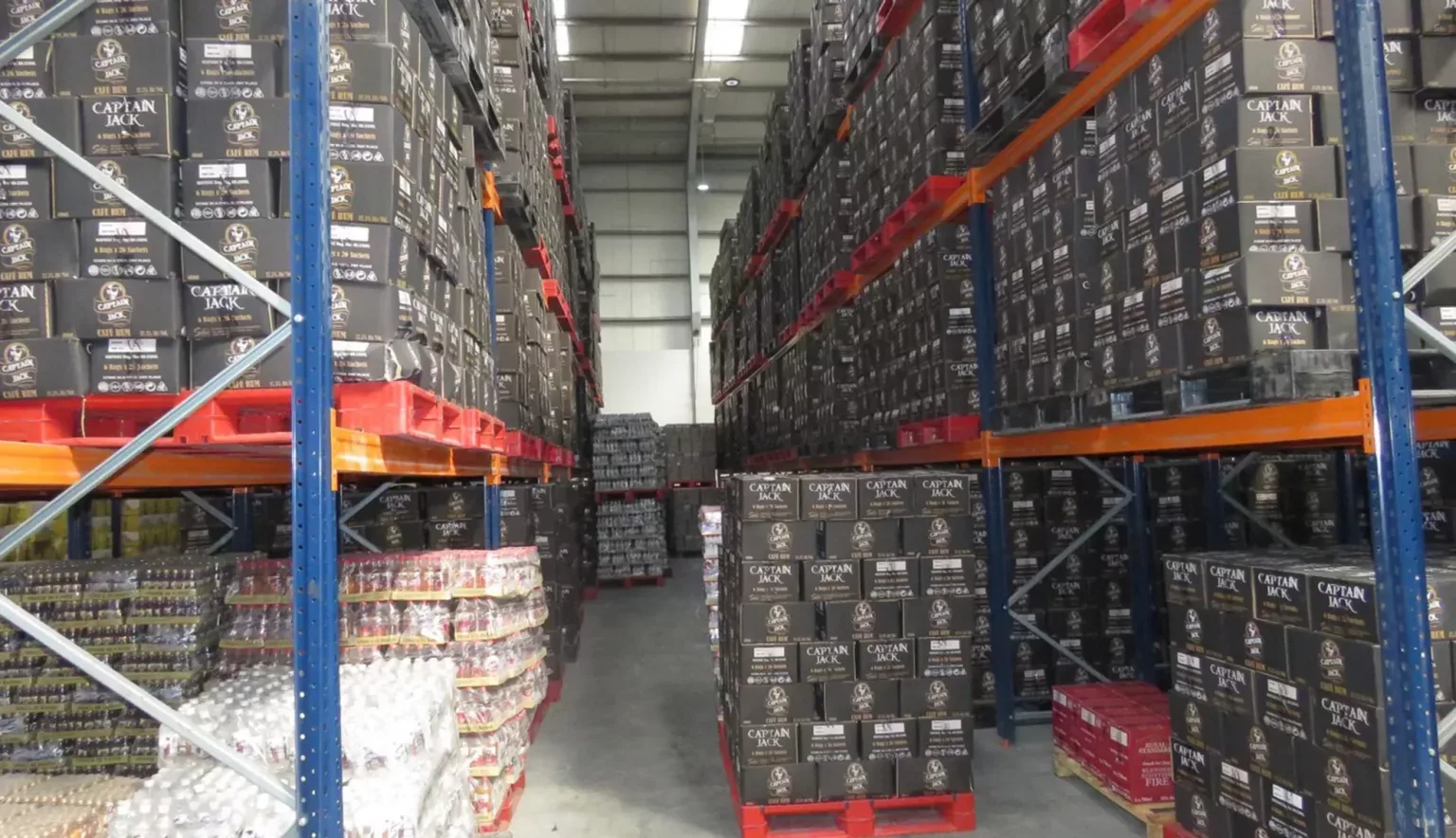FMCG Distribution is rethinking fast-moving consumer goods in Nigeria. Managing Director, Gandhi Anandan, details the company’s unique consumer focus in a thriving sector.
INTRODUCTION
With a population approaching twice the size of any other African country, one of the world’s youngest demographics, a growing middle class and increasing urbanisation, Nigeria is the largest consumer market in Africa.
The fast-moving consumer goods sector is the third-largest contributor to the Nigerian economy, estimated at 16 percent of the West African country’s gross domestic product (GDP). Distribution companies are the backbone of the supply chain, ensuring that products are available at the point of purchase for the end consumer.
“To a large extent, we are one of the very few distributors in Nigeria that actually focuses on consumers,” opens the Managing Director of FMCG Distribution (FMCG), Gandhi Anandan.
FMCG works across a variety of sectors, including tobacco, alcohol, tea and coffee, distributing products for a number of international and domestic companies such as Pernod Ricard, BiC, West African Tobacco, House of Stewart, and Stellar Beverages.
“Our role is to make brands available and visible at key points of purchase, whether that is wholesale, retail, e-business and so on. As a case in point, the success of Stellar Beverages is linked to the ability of FMCG to take their brands and put them into the hands of wholesalers, retailers and consumers,” Anandan says.
“We are challenging the status quo and taking on competitors who enjoy market-leading positions. We are now one of the fastest growing companies in each category we operate. In a relatively short space of time, we’ve made meaningful and sustainable progress.”
Today, FMCG employs around 400 people mainly in the frontline Sales and Marketing functions, ably supported by the traditional back-office roles (Logistics, Finance, IT, Legal and HR).
Present in 33 locations across Nigeria, the objective is to expand the FMCG branch footprint to all 36 states and by doing so broaden the company’s appeal to potential client partners.
“When I joined FMCG in 2012, we had less than 10 branches, so we have grown organically. The way we approach expansion is to create sustained business in a territory, then go and open up a branch in that particular location.
“One of the reasons we are opening branches is to increase our customer base. Every branch we open gives us another 50 to 100 direct customers. In recent times, we have also started exploring export markets outside of Nigeria in places like Ghana, Cameroon and South Africa,” reveals Anandan.
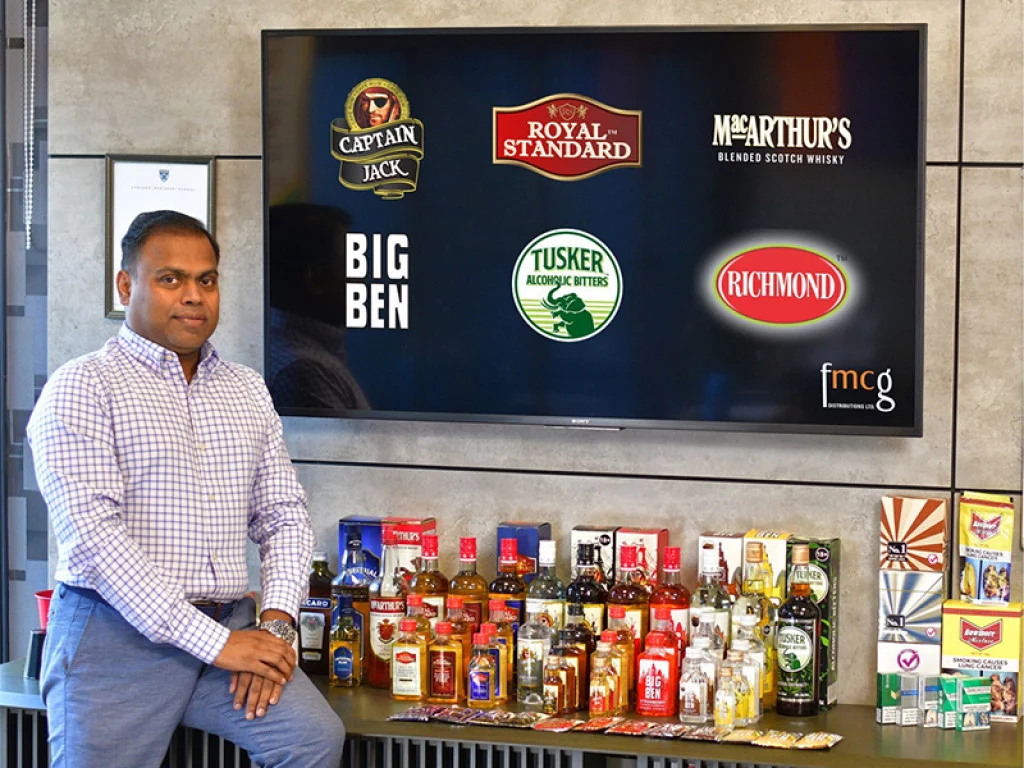
DYNAMIC DISTRIBUTION
The vision of FMCG is to be regarded as the most dynamic, efficient, and effective fast-moving consumer goods sales and marketing force in Nigeria. However, Anandan acknowledges that means nothing without distributing the very best brands.
He cites FMCG’s proven success in the tobacco sector, as the distributor of the most popular menthol cigarette in Nigeria. The company also distributes tea and coffee under the Richmond brand (both occupy positions amongst the top brands in their respective sectors), and Nigeria’s number one rum brand, Captain Jack, produced by Stellar Beverages.
“If you look at every category we operate in, whether it’s tobacco, alcohol, tea or coffee, the brands we handle are in the top three. We cherish that very strongly, we are very proud of our achievements, and the fact more and more companies want to associate and partner with us is an indication of our success,” acclaims Anandan.
Exemplifying this success is FMCG’s recently signed production agreement with Pernod Ricard, an extension of the existing distribution and sales agreement with the global wine and spirits giant.
A distribution agreement with BiC, meanwhile, will also see FMCG distribute the French manufacturer’s iconic range of lighters, with a view to extending the agreement to writing instruments, stationery, and grooming products at a future date.
“Because we distribute tobacco and cigarettes, BiC’s lighters are quite a complementary product to have in the portfolio,” Anandan tells us.
“Whereas BiC’s current distribution base is maybe 40 or 50 supermarket outlets in Lagos, we will make their lighters available to 3,000 direct customers within the first week of launch. Between tobacco, alcoholic and non-alcoholic beverages, we have, in fact, one of the largest direct customer bases in Nigeria.”
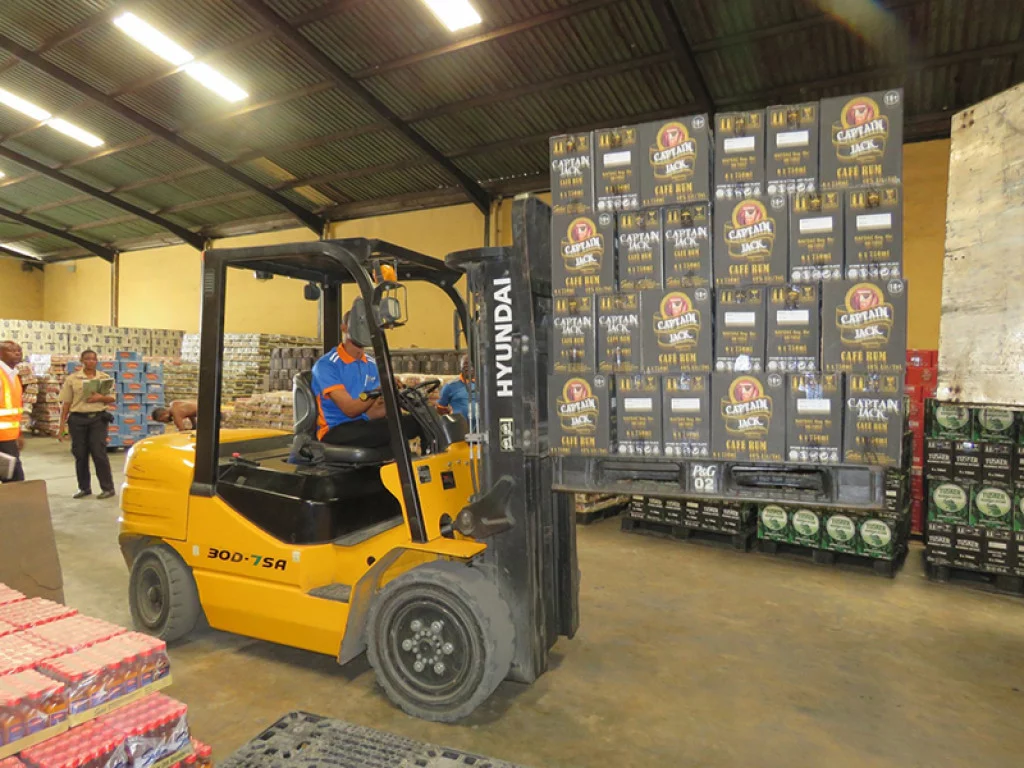
CONSUMER FOCUS
As one of Nigeria’s biggest FMCG distributors, the company delivers specific local marketing activities, trade promotional activities, consumer sampling and merchandising.
“A traditional distributor usually has no business or interest in marketing, sampling, or consumer activation. This is where there is a very big difference between FMCG and other distribution companies,” Anandan explains.
“For most distribution houses in Nigeria or other parts of the globe, their job ends the moment they make the product available on the shelf. They are not the brand owner most of the time, and even if they were, they would probably deploy an agency to carry out the marketing activity required to ensure the product moves from the shelves and into the hands of the consumer.
“We are very different because we firmly believe our job does not end at the point of distribution. The easiest thing to do is to make the products available, but the toughest thing is to make sure they end up in kitchen cupboards and so on,” he continues.
As such, all products introduced to the market by FMCG go through a “Four Ps” (pack, product, price, promotion) sales strategy, a technique successfully used by many multinationals and an example of the company’s experience in mature and emerging markets.
FMCG’s strength is in the way it operates the market. Whilst most distributors concentrate first and foremost on wholesalers, FMCG also focuses heavily on retail coverage and, most importantly, consumer interactions.
“We are very different from our competitors in the market. I don’t think there is any other distributor in Nigeria that offers the complete wholesale, retail, and consumer spectrum. I don’t know of any other company that has the depth and breadth of operations that we have,” notes Anandan.
“90 percent of our business volume comes from the 3,000 wholesalers or direct customers we sell to. But we also acknowledge the importance of retailers and consumers in creating the crucial demand-led volume pull. We consider our role in this arena to be trial and brand conviction, creating customers who have tried your brands and are convinced of their high quality and value for money proposition.”
Consumer sampling is vital to FMCG’s distribution expertise, as is the company’s emphasis on sales training programmes and courses.
“In the past year, we contacted about one and a half million consumers in the alcohol segment alone, and our success rate in selling to these consumer contacts is about 80 percent. We also have around 30 teams who pitch to retailers and ensure our products are sold into their outlets.”
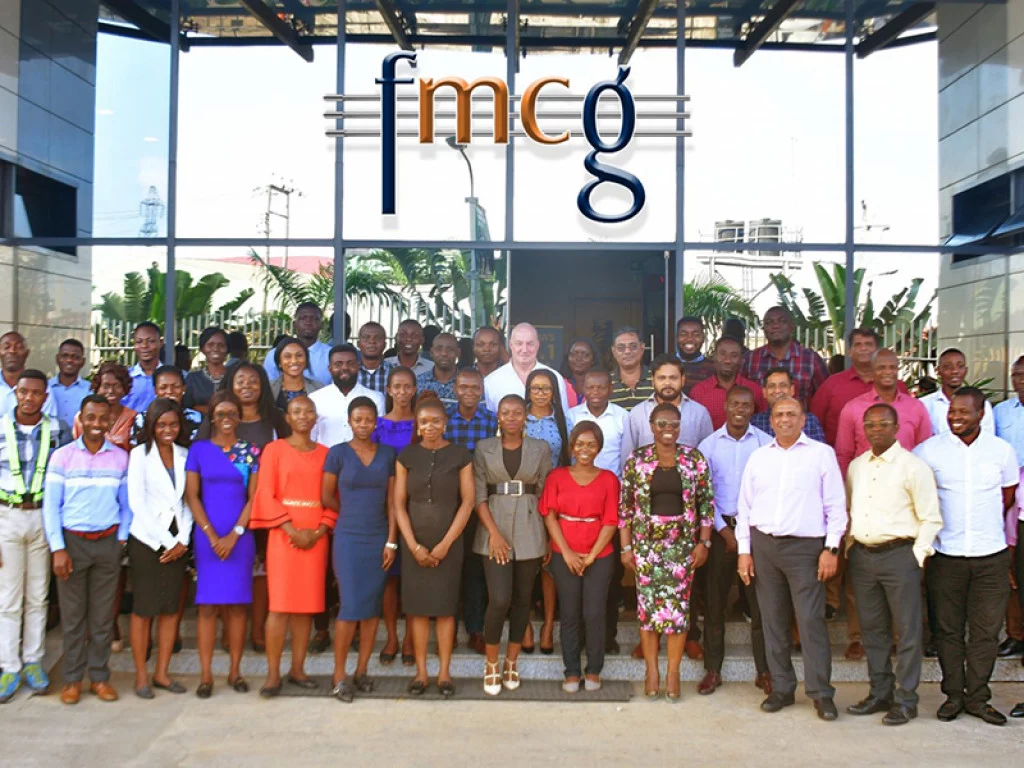
PRODUCTION CAPACITY
Having opened a new Stellar Beverages factory at the end of 2020, FMCG increased its alcohol production capacity to 42 million litres per annum.
Today the plant is operating at more than 50 percent capacity, and is expected to increase utilisation further by the end of the year.
“The trigger point will be 80 percent capacity utilisation (or around 33 million litres), which will necessitate another production facility. The way we are going, we already need to start thinking about what to do next,” Anandan says.
“Additionally, we have been scoping backwards integration. We need to be more self-reliant where we can and increase the resilience of our current supply chain.
To that end, having our own distillery is a potentially attractive proposition.
“Our shareholders are currently evaluating the economic aspects of further investments. However, to do this is a question of available finances and resource allocation. Whether we want to allocate resources to a distillery and thereby enable backwards integration, or continue downstream by adding to our production capacity is the key strategic question for the business.”
Nigeria relies heavily on imported raw materials and finished goods, however the country is currently experiencing a shortage of foreign exchange (FX) needed to pay for imports.
Exacerbated by a challenging global economic situation, the cost of imported raw materials and their shipping is soaring. Success in Nigeria will be unlocked by local production and strong relationships with local suppliers, according to Anandan.
“When many things are imported into the country and dependant on FX, we rely on astute supply chain partners that don’t get caught up in speculation, don’t knee-jerk in response to market rates, and provide reasonably priced raw materials,” he outlines.
“We have actually been able to procure our raw materials on better terms year-on-year, and you might be wondering how that is even possible when everything is going up in price, and the answer is very simple.
“It’s all about supplier relationships, negotiations, and the scale of operations. If we’re producing more, we have the scale to go and negotiate a better price because we’re going to be buying more raw materials, and people understand that kind of approach.”
FMCG has long-standing contracts and agreements with suppliers, negotiating rates well in advance and ensuring that it is always well-stocked with raw materials.
“We can sit on anywhere between three to six months of stock, and this is only possible when you have reliable supply chain partners. It’s a team effort, and we have a fantastic set of suppliers and partners that are very understanding and proactive.
“That is really the key to doing business in any part of the world, especially in a place like Nigeria where the supply chain is the backbone of everything,” Anandan affirms.
“To a large extent, we are one of the very few distributors in Nigeria that actually focuses on consumers”
Gandhi Anandan, Managing Director, FMCG Distribution
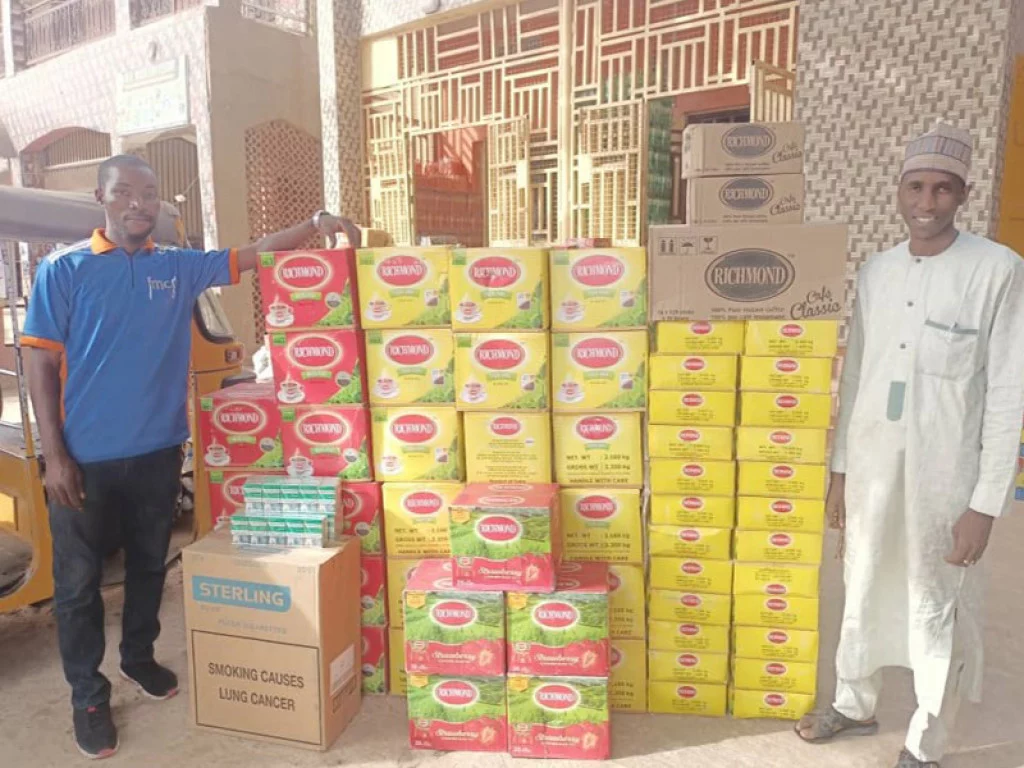
PRIORITISING PEOPLE
Emphatic about local talent, an impressive 95 percent of FMCG’s employees are Nigerian, including a number of senior managers who have worked their way up through various levels of the company.
As well as bringing in up to 20 university graduates a year, FMCG has training centres located at three branches in Lagos, Enugu, and Kaduna that act as on-site campuses.
“People stay, eat, work and learn together at the training centres. They go out to test their skills together as teams and learn from each other, which creates motivation, encouragement and camaraderie,” shares Anandan.
“We believe in the concept of growing and developing our own staff. At the end of the day, you could have a portfolio of great brands, an effective supply chain, efficient production, but if you don’t have the right skillsets and human capital, you have nothing.”
People are one of FMCG’s key priorities, and with inflation in Nigeria at an all-time high, the company has brought forward salary increments for all staff.
“Considering the situation on the ground and the economic crisis, we announced a mid-year increment effective in June this year. The minimum increase anyone is getting is around 10 percent, and those who are lower paid have been afforded an increase of close to 20 or 25 percent in many cases,” Anandan informs us proudly.
“We are trying as much as possible to ease the financial strain that we are all collectively facing. The increments are not necessarily going to solve all the problems, but I think it will go a long way.”
EXCITING FUTURE
Despite the ongoing challenges, Anandan anticipates some “very, very exciting” years ahead.
“FMCG is one of those companies in Nigeria that people are watching to see what we’re going to deliver,” he says.
“We are successful because we are very focused, very different, and very methodical in our approach to selling our various products and building our brands.
“I think we’re going to take the market by storm. We’re just going to get bigger and better, and if we continue doing what we’re doing and improve how we do it, the only thing that can come out of it is more success.”



